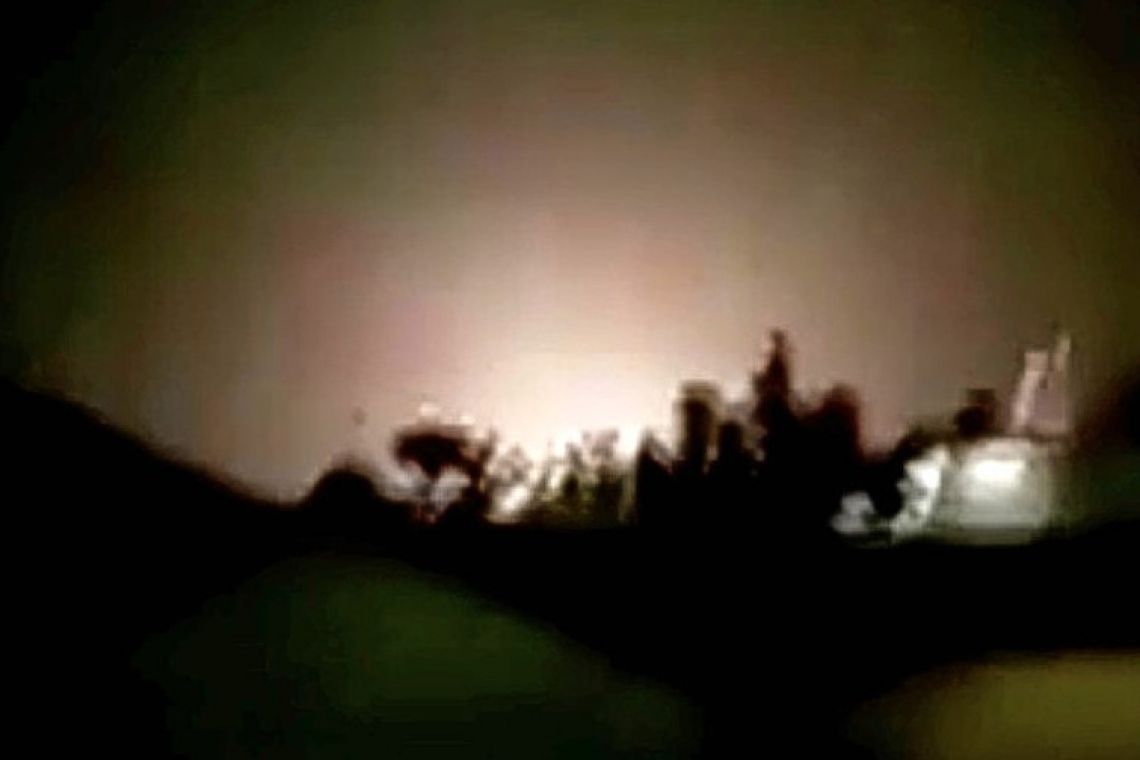BAGHDAD/WASHINGTON--Iran said it launched a missile attack on U.S.-led forces in Iraq in the early hours of Wednesday in retaliation for the U.S. drone strike on an Iranian commander whose killing has raised fears of a wider war in the Middle East.
Tehran fired more than a dozen ballistic missiles from Iranian territory against at least two Iraqi military bases hosting U.S.-led coalition personnel at about 1.30 a.m. local time, the U.S. military said on Tuesday.
Iran's Islamic Revolutionary Guards Corps confirmed they fired the missiles to retaliate for last week's killing of Qassem Soleimani, according to a statement on state TV. The statement advised the United States to withdraw its troops from the region to prevent more deaths, state TV said.
The Pentagon did not provide reports of casualties in the attack. "We are working on initial battle damage assessments," Pentagon spokesman Jonathan Hoffman said in a statement, adding the bases targeted were al-Asad air base and another in Erbil, Iraq. "As we evaluate the situation and our response, we will take all necessary measures to protect and defend U.S. personnel, partners, and allies in the region."
U.S. President Donald Trump, who visited the al-Asad air base in December 2018, has been briefed on reports of the attack and was monitoring the situation, White House spokeswoman Stephanie Grisham said. "We are aware of the reports of attacks on U.S. facilities in Iraq. The president has been briefed and is monitoring the situation closely and consulting with his national security team," Grisham said in a statement.
Late on Tuesday, Trump said he would make a statement on the situation on Wednesday morning. "All is well!" Trump said in a post on Twitter.
U.S. Secretary of State Mike Pompeo and U.S. Defense Secretary Mark Esper arrived at the White House following news of the attack. It was unclear what response, if any, the United States was planning.
Hours earlier on Tuesday, Esper said the United States should anticipate retaliation from Iran over Friday's killing in Iraq of Soleimani, commander of the elite Quds Force. "I think we should expect that they will retaliate in some way, shape or form," he told a news briefing at the Pentagon, adding that such retaliation could be through Iran-backed proxy groups outside of Iran or "by their own hand."
"We're prepared for any contingency. And then we will respond appropriately to whatever they do."
Trump on Tuesday said he would obey international law on avoiding targeting cultural sites in military attacks, walking back a threat he made to Iran days earlier. Trump on Saturday said the United States has targeted 52 Iranian sites, including ones that are very important to Iranian culture, and would strike if Iran attacks Americans or U.S. assets in response to the U.S. killing of Soleimani. Attacking cultural sites, though, would break international conventions and treaties, and the threat sparked concern around the world.
Trump, speaking to reporters in the Oval Office as he met Greek Prime Minister Kyriakos Mitsotakis, made clear he would reluctantly abide by the law. "You know what, if that's what the law is, I like to obey the law. But think of it: They kill our people, they blow up our people and then we have to be very gentle with their cultural institutions. But I'm OK with it. It's OK me," he said.
"I will say this: if Iran does anything that they shouldn't be doing, they're going to be suffering the consequences and very strongly," he added.
Iranian Foreign Minister Mohammad Javad Zarif said Iran took "proportionate measures in self-defense under Article 51 of the U.N. Charter," targeting the bases where the attack against its citizens and senior officials was launched. "We do not seek escalation or war, but will defend ourselves against any aggression," he wrote in a post on Twitter.
Democrats in the U.S. Congress and some of the party's presidential contenders warned about the escalating conflict. "Closely monitoring the situation following bombings targeting U.S. troops in Iraq," U.S. House of Representatives Speaker Nancy Pelosi said on Twitter. "We must ensure the safety of our service members, including ending needless provocations from the Administration and demanding that Iran cease its violence. America & world cannot afford war."
The U.S. Federal Aviation Administration said it would prohibit U.S. civil aviation operators from operating in the airspace over Iraq, Iran, the Gulf and the Gulf of Oman. Singapore Airlines had already diverted all flight routes from Iranian airspace.
A NATO official told Reuters it would move some of its several hundred trainers out of Iraq. Canada said on Tuesday some of its 500 Iraq-based forces would be temporarily moved to Kuwait for safety reasons.
A senior Iranian official said on Tuesday that Tehran was considering several scenarios to avenge Soleimani's death. Other senior figures have said the Islamic Republic would match the scale of the killing when it responds, but that it would choose the time and place.
"We will take revenge, a hard and definitive revenge," the head of Iran's Revolutionary Guards, General Hossein Salami, told throngs who crowded the streets for Soleimani's funeral on Tuesday in Kerman, his hometown in southeastern Iran.
Ali Shamkhani, secretary of Iran's Supreme National Security Council, said 13 "revenge scenarios" were being considered, Fars news agency reported. Even the weakest option would prove "a historic nightmare for the Americans," he said.







